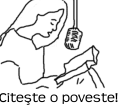Ironically, Thievery Corporation formed in Washington D.C., a city the duo often refer to as 'the real Babylon." One major by-product of life in the heart of empire is the diversity of the people it attracts to its riches. Underneath the power brokering, DC has quietly spawned a sophisticated musical multi-culturalism (especially in the Adams Morgan and Dupont Circle neighborhoods that became TC's home). The city also gave a base to Dischord Records and Positive Force, a scene whose fierce independence, musically and politically, forcibly affected every nearby young musician with a non-mainstream pulse.
Hilton grew up in suburban Maryland, playing guitar under the influence of punk and all it ushered in -- first rocking around with a pre-teen garage band, then warmed by the glow of the District's hardcore revolutionaries, Minor Threat. "I think Rob and I both followed those early releases on 7" vinyl only and we never forgot that this little Indy label called Dischord, run by the band members sent shockwaves around the globe. I still get a little idol-stuck when I see one of the Fugazi guys in the neighborhood."
After cutting his teeth on DC and UK punk, Hilton was sonically liberated by UK two-tone crews such as the Specials and Brit-soul sides such as the Style Council. After checking the references of those bands, he was turned on by the roots and soul music of Jamaica and America. Hilton's first deejay gig was playing ska and Northern Soul as an opener for his friend's Mod band. Later, he asked to spin house music at DC's top super-club of the '80s, the Fifth Column. By the early 90's he helped throw a warehouse weekly called Exodus, where Hilton tapped a young deejay Dubfire (now, half of the house music duo DeepDish) to spin a multi-culti mix of hip-hop, soul jazz, dancehall and dub.
Rob Garza's youthful existence (mostly in suburban Maryland as well, but also Connecticut and his mother's hometown of Juarez, Mexico) involved digging into his parents' collection of knowingly picked, adult classics - Henry Mancini, Sam Cooke, Johnny Cash, The Beatles - followed by immersion into the weirder shades of atmospheric rock (The Pixies, Hugo Largo) and the industrial side of life (Renegade Soundwave, Meat Beat Manifesto). By the end of high school, he was making beats in his own basement studio for unsigned rappers, while studying classical piano. A love-at-first-listen with bossa nova king Antonio Carlos Jobim was in his future.
Garza and Hilton finally met in the summer of 1995 at the now-infamous Eighteenth Street Lounge. As the myth goes, Eric and Rob bonded over strong drinks, dub, bossa nova and jazz records, then decided to see what would come of mixing all these in a recording studio. The duo caught the ears of underground deejays with their first two offerings, "2001 Spliff Odyssey" and "Shaolin Satellite". Who could have predicted that those two offerings and a subsequent LP, Sounds from the Thievery Hi-Fi, would define a new genre in electronic music, and connect with an international community of like-minded souls? Even as the terminology and lexicon has come and gone (trip-hop, downtempo, chill out, leftfield and other innocuous record industry monikers), Thievery Corporation have managed to defy the confines of category and creatively tap in to their deep appreciation for by-gone sounds as they deftly re-interpret them in their own innovative fashion.
"Our deepest source of inspiration comes from our record collections. On this album we wanted to make songs that sounded like they may have been recorded by some of our favorite artists from the past. We also wanted to explore that sort of late 60's Moog-ed out, paisley-beat sort of thing as well," says Garza.
we live for nothing. we die for free
10 years ago






No comments:
Post a Comment